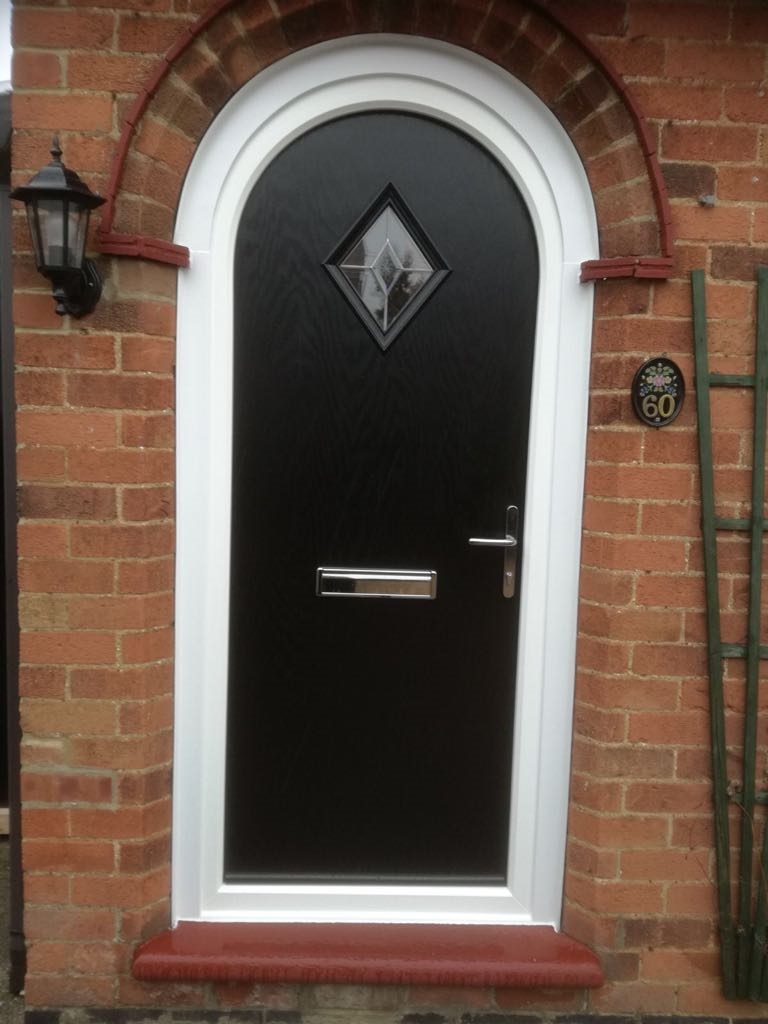Composite Doors vs. uPVC Doors: Which Material is Best for Your Home?
| By MoWindows
First impressions are everything, and your front door sets the tone for your entire home. With a breadth of choice in terms of style, design, and hardware, selecting the right entrance can be challenging. However, one of the key considerations when choosing a new door is the material: Should you choose a composite door or a uPVC door?
Ultimately, neither door is inherently “better” than the other—it depends entirely on your priorities (e.g., budget, aesthetic, security level). In this post, we’ve put together a detailed comparison of the advantages and disadvantages of composite and uPVC doors to help you select the best option for your home.
Quick Comparison: Composite Doors vs. uPVC Doors
Here is a snapshot of the core differences:
-
Aesthetics & Finish: Composite doors offer superior appearance. They mimic timber grain.
-
Insulation: Composite doors are generally thicker. They are also slightly more energy efficient.
-
Cost: uPVC doors are significantly cheaper upfront.
-
Lifespan & Durability: Composite doors tend to have a longer guaranteed lifespan.
Composite Doors: Pros and Cons (The Premium Choice)
Manufacturers construct composite doors from several materials. These materials include timber, insulating foam, and GRP. They glue the layers together under high pressure. This makes them a dense and highly durable option.
Composite Door Advantages (Pros):
Superior Aesthetics: Composite doors come in a much wider range of finishes. These include deep timber grain effects. This gives them a premium, high-end appearance. Their color resists fading or weathering well.
High Energy Efficiency: Their multi-layered, thick construction makes composite doors often more thermally efficient than uPVC. This provides better insulation. Consequently, it helps reduce energy bills further.
Increased Security: Both materials provide security. However, the robust, thicker core construction of composite doors makes them slightly superior. This improves structural integrity and resistance to forced entry.
Long-Term Value: They are designed to last. Many door slabs have a guarantee for ten years or more. They require no repainting or significant maintenance.
Composite Door Disadvantages (Cons):
Higher Cost: Composite doors require a significantly larger upfront budget than uPVC. Their durability offers great value over time. Nevertheless, the initial outlay is higher.
Weight: They are considerably heavier than uPVC. This can make installation slightly more complex.
uPVC Doors: Pros and Cons (The Budget-Friendly Option)
uPVC (unplasticised polyvinyl chloride) doors use a rigid, durable plastic. Steel reinforces this plastic. They are the most common type of door found in UK homes.
uPVC Door Advantages (Pros):
Lower Cost: This is the main draw. The initial outlay for a uPVC door is much lower. This makes them the most budget-friendly option for immediate replacement. They also work well for internal applications like utility room or secondary porch doors.
Excellent Low Maintenance: uPVC is remarkably easy to maintain. You can simply wipe clean any stains with soapy water. It is fully weatherproof. It does not rot, rust, or require painting.
Good Performance: Modern uPVC doors still provide high levels of insulation and security. They represent a vast improvement over old timber or metal doors.
uPVC Door Disadvantages (Cons):
Fewer Styles Available: uPVC doors come in various colors and glass styles. Yet, the range is far more limited than composite doors. It is difficult to achieve the deep, realistic timber texture that composite offers.
Potential for Discolouration: Modern uPVC is durable. However, prolonged neglect or improper cleaning chemicals can occasionally cause the frame to slightly discolour or yellow over many years.
Perceived Value: uPVC is generally seen as the standard option. It may not add the same curb appeal or perceived property value as a high-quality composite door.
Which Door is Right for Your Home?
The choice ultimately comes down to your primary goal:
- Composite Doors: If Your priority is **maximising kerb appeal**, achieving the **highest security** and thermal efficiency, and you have the **budget** for a premium, long-lasting investment.
- uPVC Doors: If Your priority is **cost savings** upfront, low maintenance, or if the door being replaced is **behind a porch** or in a less visible location where high-end aesthetics are less critical.
To obtain a from MoWindows, contact us today to speak to one of our experienced advisors who can help you weigh your options based on your specific property requirements and budget.
👉 Get a free quote today or WhatsApp us on 07939 397307
Posted in: Doors | Tags: composite doors, uPVC doors, front door comparison, door security, energy efficient doors

